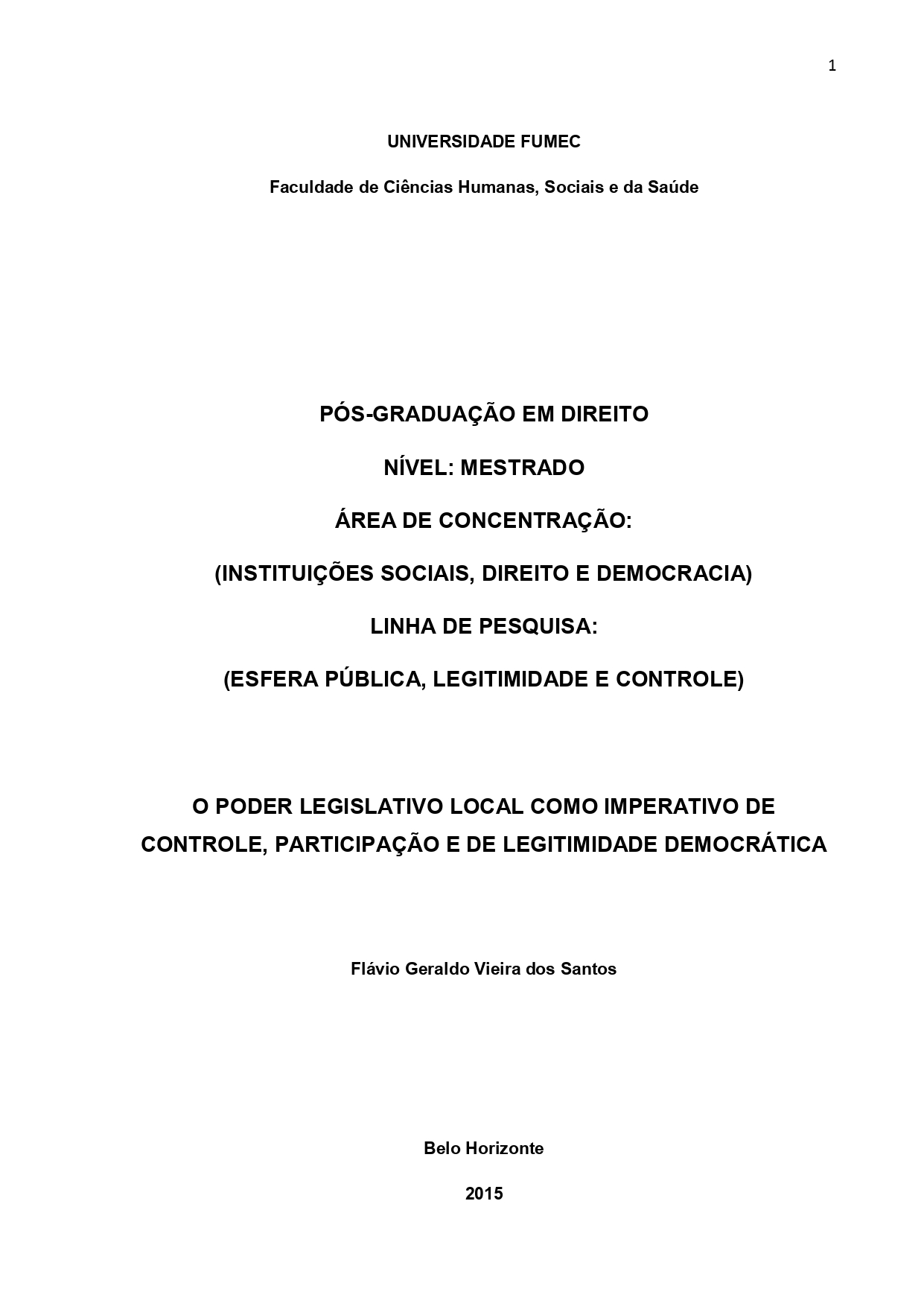O poder legislativo local como imperativo de controle, participação e de legitimidade democrática

Visualizar/
Data
2015Autor
Santos, Flávio Geraldo Vieira dos
xmlui.mirage2.itemSummaryView.MetaData
Mostrar registro completoResumo
A presente tese diz respeito a um campo específico do direito que estuda o Poder
Legislativo local. O tema foi explorado a partir da doutrina, da literatura especializada
e de cortes da jurisprudência do Supremo Tribunal Federal. Partiu-se das teorias de
divisão de poderes de Aristóteles, Locke e Montesquieu, da distribuição de funções
a órgãos distintos e do sistema de freios e contrapesos. Ante a inserção
constitucional do município como ente autônomo, a descentralização de poder, a
execução de políticas públicas diretamente pelos poderes locais e o questionamento
que paira sobre a atuação dos legislativos locais, foi possível testar a hipótese inicial
de fortalecimento do Poder Legislativo local à luz do sistema federativo brasileiro e
as condições normativas e práticas que permeiam os parlamentares locais e seu
padrão de comportamento. A pesquisa adotou como elementos estruturantes à luz
da raiz constitucional de separação dos poderes, o estudo do poder local, as
câmaras municipais, o processo legislativo, a participação popular, a intermediação
de interesses e os consórcios públicos na execução de políticas públicas regionais.
A partir da confirmação de desconhecimento da função do legislador local, da baixa
produtividade legislativa, da relação obscura do chefe do executivo municipal com os
vereadores, da omissão na função de fiscalização, da falta de transparência e de
participação popular no processo legislativo, dos casos reiterados de corrupção, da
intermediação obscura de interesses particulares, do clientelismo e do atendimento
paroquial, concluiu-se de que num país de grandes desigualdades econômicas e
sociais, de território extenso, de centralização de recursos, não é possível
generalizar um padrão de atuação do legislativo local condizentes com as
expectativas da sociedade e tendências contemporâneas do Estado Democrático de
Direito. This thesis concerns a particular field of law that studies the legislative branch
location. The topic was explored from the doctrine of the literature and cuts the case
law of the Supreme Court. It started from the theories of Aristotle's division of powers,
Locke and Montesquieu, the distribution of functions to different bodies and the
checks and balances system. Before the constitutional inclusion of the municipality
as an autonomous entity, decentralization of power, the implementation of local
public policies directly by the powers and the question that hangs over the
performance of local legislative, it was possible to test the initial hypothesis to
strengthen the Legislative Branch place the light the Brazilian federal system and
regulatory conditions and practices that permeate the local parliamentarians and their
pattern of behavior. The research adopted as structural elements in the light of
constitutional root of separation of powers, the study of local government, the local
authorities, the legislative process, popular participation, the mediation of interests
and public consortia in the implementation of regional public policies. From the
function of the lack of confirmation of the local legislature, the lower legislative
productivity, unclear relationships of the head of the municipal executive with the
councilors, the omission in the supervisory function, the lack of transparency and
public participation in the legislative process cases repeated corruption, the dark
intermediation of private interests, clientelism and parish service, concluded that in a
country of great economic and social inequalities, vast territory, of resource
centralization, you can not generalize a pattern of activity the local legislative
consistent with the expectations of society and contemporary trends of the
democratic rule of law.
